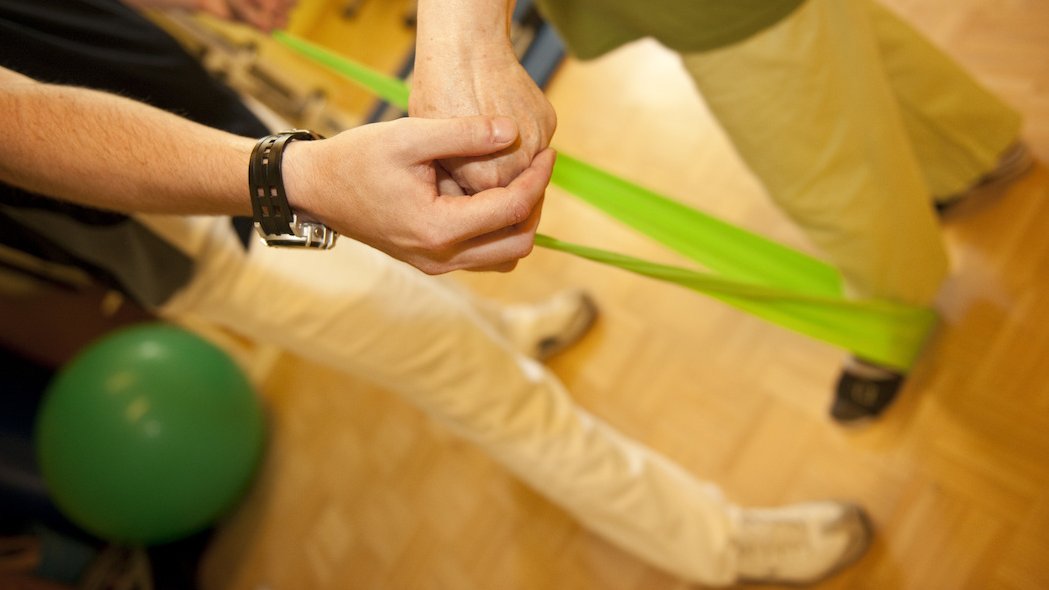Therapies
If you want to help other people professionally, there are also various career goals in non-medical therapy. These include occupational therapy, physiotherapy, speech therapy and music or art therapy.

Overview of the academic discipline
This field of study is characterised by the fact that all degree programmes are concerned with helping people to maintain or restore their health. In many cases, in addition to specific therapeutic and medical knowledge, students are also taught psychology as well as legal and social principles.
Which topics are included in the curriculum?
In all undergraduate therapy degree programmes, basic biomedical, diagnostic and therapeutic training takes place in the foundation course (Bachelor).
- This includes, for example, modules in various psychological and medical disciplines as well as in basic music and visual arts subjects and their therapeutic application in the music and art therapy degree programmes.
- Psychological, neurological, linguistic and audiological-phoniatric studies fill the first semesters of the speech therapy degree programmes.
- In music therapy, for example, basic instrumental techniques and basic musical skills - melody and hearing - are added, and in art therapy, individual artistic training.
The Master's programme generally continues, deepens and expands on subject areas and teaches practical skills at an advanced level. There are also modules on quality assurance and the social and healthcare system.
What are the requirements?
A good basis for studying in this field is in-depth knowledge of the following school subjects: Biology, Politics/Social Studies, English, German, Maths. For the artistic therapy degree programmes, in addition to the school-leaving certificate, you need appropriate proof of aptitude, e.g. a passed entrance examination.
What study programmes are there to choose from?
In speech therapy, occupational therapy and physiotherapy, for example, there are dual study programmes in which vocational school training in a corresponding profession and an undergraduate degree course at a university of applied sciences take place in parallel and are related to each other; in some cases, however, initial training in a corresponding profession is also required at the start of the course.
Possible course titles include (applied) therapy sciences, interdisciplinary healthcare, clinical linguistics, art therapy, music therapy or theatre therapy.
What job opportunities are there after graduation?
Non-medical therapists generally treat sick people and people with disabilities independently on a doctor's prescription using the methods of their respective speciality. They work in clinics, rehabilitation centres, healthcare training facilities and freelance/self-employed or in their own practice.
info
In this field of study, there are also some Master's programmes for experienced professionals, most of which are subject to a fee. You can search for corresponding degree programmes at www.arbeitsagentur.de/studiensuche and www.hochschulkompass.de.
